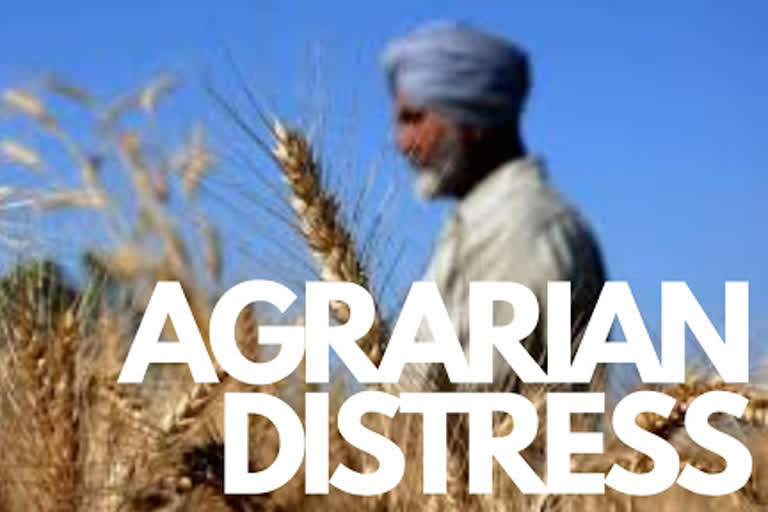Hyderabad: Under normal circumstances, at this time of the year, farmlands and market yards can be seen bustling with Rabi yields. Thanks to COVID-19, the livelihoods of farmers are on the brink of collapse. A study by CRISIL (Indian analytical company providing ratings, research and policy advisory services) mirrors the nationwide distress of farming community. Compared to last year, the wheat and mustard yields declined by 90 per cent. The harvesting process has not yet started in Punjab and Haryana, two states known for wheat cultivation.
The CRISIL study underlined four major reasons for this stagnation. Delays in Rabi harvesting this year, shortage of agricultural workers amid lockdown, lack of adequate transportation facilities and sluggish market yards have led the farmers to this dire state.
The majority of farmers are uncertain as there are no buyers for their produce. Fruit and vegetable farmers are the worst hit as the produce is lying stagnant due to lack of transportation facilities. Farmers are distributing tons of yield for free, especially grapes and sweet lime. Some are letting the cattle loose to graze in their farms. Mango farmers who hoped to make a profit this summer, are deeply distressed with the closure of interstate borders.
What’s worse than witnessing an abysmal supply and distribution system in an agricultural country like India?
Also read: COVID-19: Cases in India mount to 29,974, no fresh case in 17 districts in 28 days
Announcing that more than 1 crore tons of paddy grains will flood Telangana this year, Chief Minister KCR assured the farmers that his government will buy every grain from rural agribusiness centres. Allocation of INR 28,000 crores towards collecting maize and other Rabi yields is a laudable move. This kind of initiative must be taken by every state. Despite the generous response from the Telangana government, the district level authorities are making farmers’ lives miserable. Without institutional support or remunerative prices, farmers in many states are losing hopes on this year’s harvest.
While the farming community is striving hard to avert an imminent food crisis, we as a nation are reluctant to pay a fair price for their efforts. The UNO estimates 13 crore people are facing an acute food scarcity worldwide. The number is going to go up to 26 crores by the end of COVID-19.
Amid such circumstances, it is foolish to let any crop produce go down the drain. The Chhattisgarh Chief Minister Bhupesh Baghel suggested an innovative idea that the National Rural Employment Guarantee allows wages to be paid in the form of food grains. If this can be implemented, both employment generation and food grain consumption can be achieved in one go. At the same time, governments need to procure fast perishable commodities and quickly transport them to cold storage units.
This stored produce can be exported or brought into domestic market on a need basis. In extraordinary times, only extraordinary decisions can save the nation!



